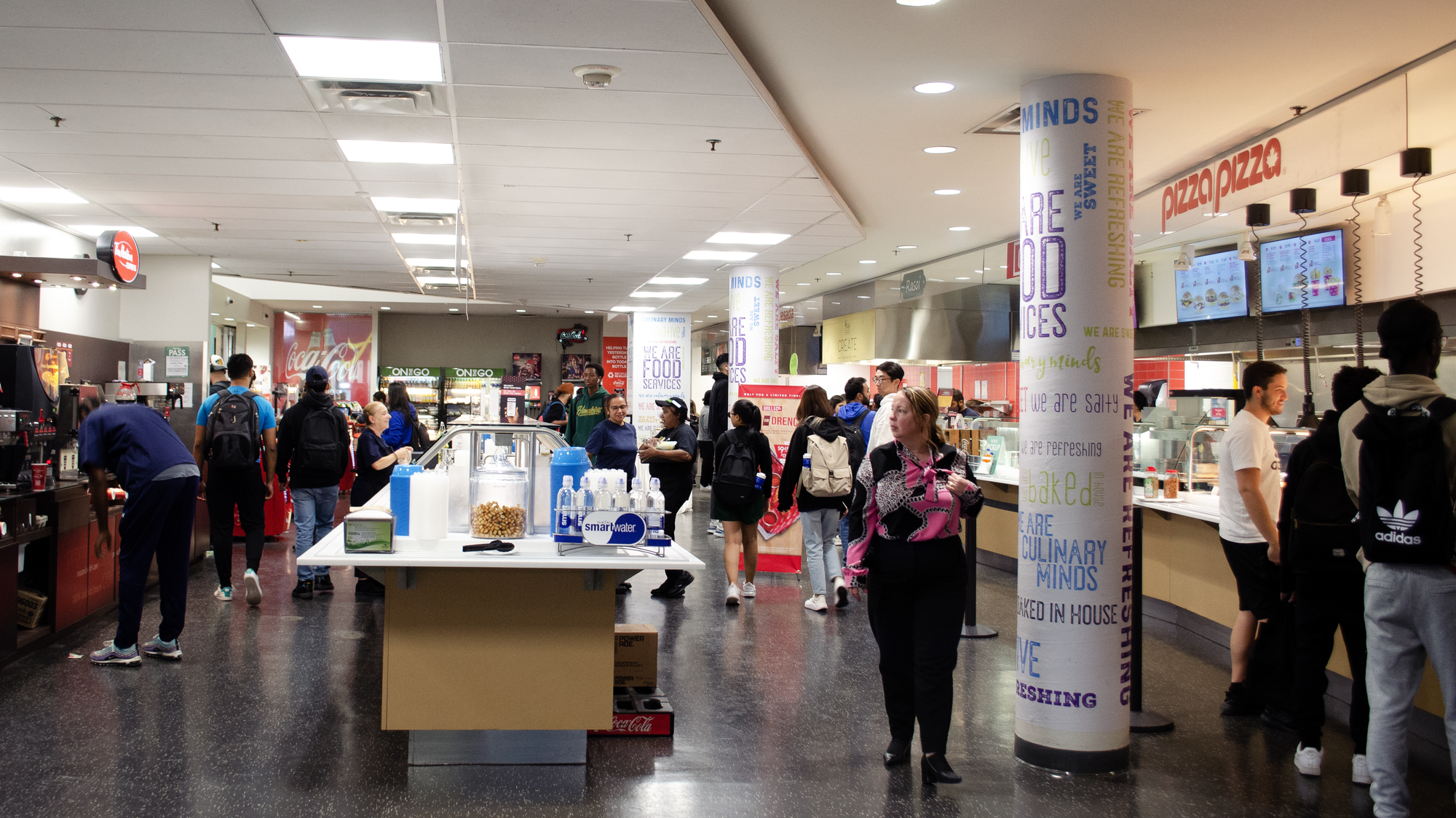Sanskriti Mansotra, a computer engineering technology student from India, said going to a Humber cafeteria on a hungry stomach could be a difficult task, as she often worries whether she’ll find food she’s allowed to eat.
“In the early hours for breakfast, it’s mostly eggs, pancakes and bacon,” Mansorta said, referring to some food options at Humber.
Mansotra, who hails from a Hindu family, welcomes the reopening of Humber’s Food Emporium since there are more options other than beef or pork, which she’s religiously forbidden to eat.
The Food Emporium website said the college’s outlets “offer students, staff and guests a diverse selection of high-quality balanced meals daily.”
“For vegetarians, pancakes may be the only option,” Mansotra said.
While the available option might suit a student’s taste, it might not fit their budget. This is why some flock to the in-campus Tim Hortons for cheaper alternatives, Mansotra said.
Michael Classens, assistant professor of food systems at the University of Toronto, said schools that can’t provide food security undermine their core principle of educating students.
“You can’t educate students if they’re hungry,” he said.
A 2021 study conducted by Meal Exchange revealed 60 per cent of post-secondary students cannot afford to eat balanced or nutritious meals. The study also found that racialized students are more likely to experience food insecurity than others.
“Racialized international students are disproportionately impacted,” Classens said.

Sanskriti Mansotra, an international student at Humber College, budgets for two meals on campus daily. She said she couldn’t spend $7 on a single food item. Photo credit: Annicca Albano
Inflated tuition fees and rising housing costs force them to scrimp on food, he said.
To cater to Humber’s diverse student population, the college outsourced most of its food services to Chartwells, the country’s largest educational food service provider.
Chartwells did not respond to questions in time for publication for Humber News’ Et Cetera.
The importance of having diverse food options in schools is widely recommended by experts in Canada. For Jennifer Brady, cultural food security researcher and associate professor of nutrition at Acadia University, students unable to access the diet they grew up with struggle to fit in.
“Food provides you a connection to your home, your family and who you are. It gives you a connection to your spiritual heritage or culture you come from,” she said.
“It’s more than a craving. It’s your fundamental identity,” Brady said, adding food stereotyping and making Halal versions of Western foods fail to acknowledge individual food preferences and nutritional needs.
Brady said school location is another determinant of food accessibility affecting everyone, from students to faculty and staff.
If you study in downtown Toronto, “chances are you’ll be able to find a grocery store that caters to your sort of cuisine from your country of origin,” she said, noting that often only those who have the means to buy imported goods can access culturally affirming foods.
Like Acadia University, the college’s North campus is largely suburban. The addition of microwaves — few are available in the school cafeteria — is one of the eight recommendations the Canadian Federation of Students–Ontario made a decade ago. It enables students to bring homemade lunches, saving money while making healthier food choices.
Food insecurity isn’t unique to newcomers, however. Statistics Canada reported that In 2021, 18.4 per cent of Canadians or 6.9 million people, were reported to live in households that experienced varying levels of food insecurity.
IGNITE has reopened the Soupbar this week in response to the chronic food insecurity.
For Mansotra, the Soupbar and the Food Emporium’s salad bar aren’t enough.
“Because how long are you going to eat soup,” she told Humber News.
Classens, whose research on alternative campus foodscape mentioned the IGNITE Soupbar and other student-run food co-ops, said academic institutions need to do more to reduce hunger.
“This absolutely should not be falling to students to address,” he said. “It’s almost revictimizing them.”
The Food Emporium is located on the lower level of K Building. It is open Monday to Thursday from 8 a.m. to 7 p.m. and Friday until 3 p.m.

